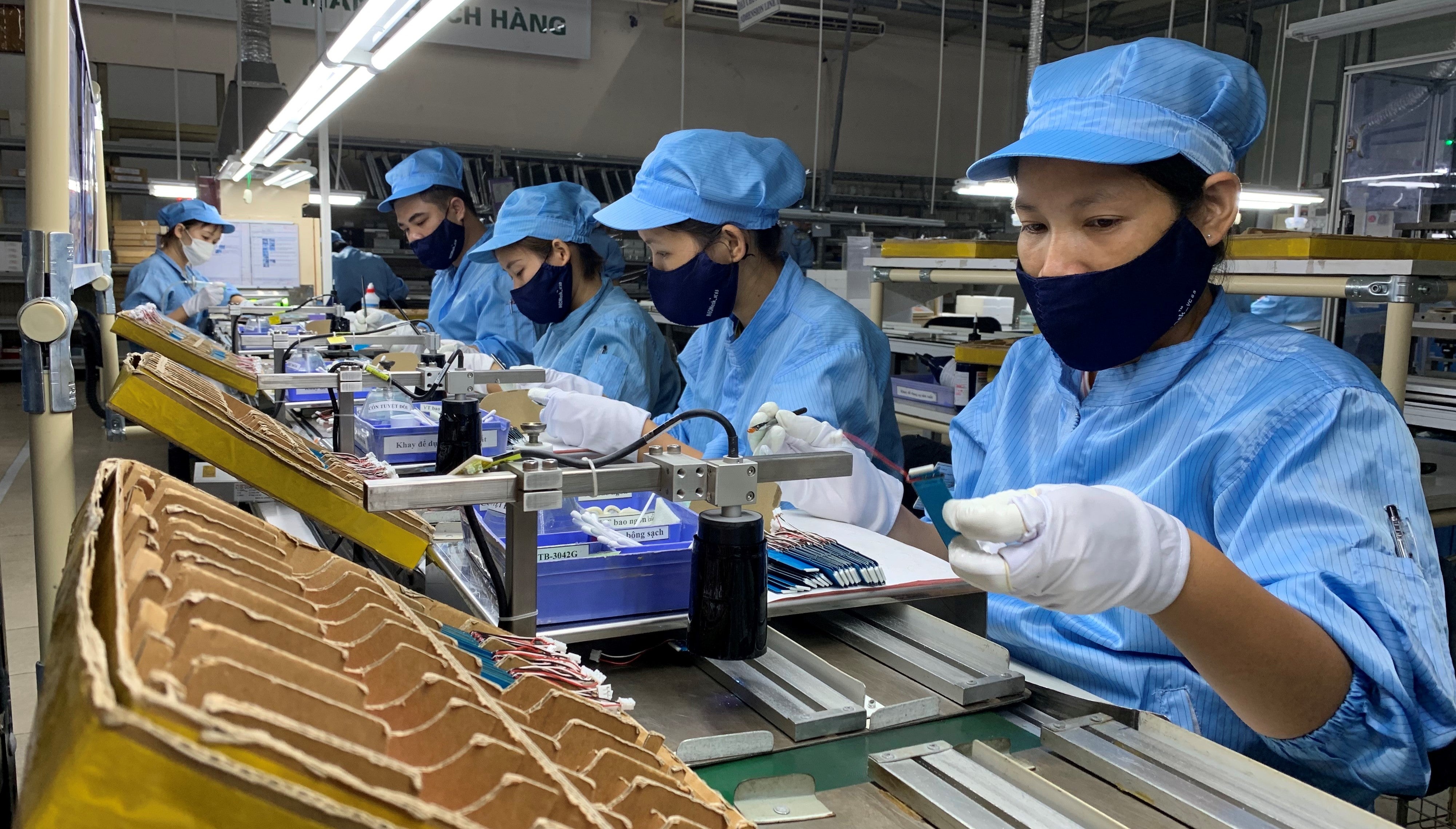 Workers checking electronic chips at Hanel PT factory in Hanoi, Vietnam. Photo: © Van Anh/IFC
Workers checking electronic chips at Hanel PT factory in Hanoi, Vietnam. Photo: © Van Anh/IFC
The World Bank Group is committed to providing a fast, flexible response to the coronavirus pandemic. We are offering financing, policy advice and technical assistance in every region, across every area from healthcare and education to trade and technology. In this blog series we explore how different teams around the World Bank Group are responding to the challenges ahead.
1. How is your team responding to COVID-19?
IFC’s Asia and Pacific team is focused on delivering on the institution’s plan to provide $8 billion in fast-track financing to existing clients. Asia was hit early by the pandemic, and we expect clients in the region to benefit from this facility. The goal is to keep companies operating so we can limit the downside economic risks and preserve jobs and livelihoods.
As a development institution, it’s crucial we stay engaged with our clients. We’re regularly checking in on how they’re faring, assessing how we can help them during this difficult time. We’re explaining how the COVID response package works and answering any questions they have. People will remember how we react during a time of crisis.
2. What are the biggest challenges this pandemic poses?
The pandemic is having a major economic impact on our clients, client countries and their populations. One of the biggest industries in Asia—tourism--is being significantly impacted. Tourism is a major generator of jobs through direct and indirect employment. For every direct job tourism creates, another six to eight are indirectly created in associated sectors.
Manufacturing is also suffering. Manufactured goods are increasingly assembled from components produced in multiple countries. With slowing production, and air freight costs increasing, due to lower cargo capacity in passenger flights, manufacturing supply chains are being disrupted. The supply shock is having a knock-on effect on retail, which is simultaneously experiencing declining consumer demand.
The other big challenge is to ensure our team feels supported and engaged. Our inability to travel and work in groups is also making us increasingly isolated. To work effectively as a team, we need to ensure that staff are physically and mentally in good shape.
3. How is IFC working to address these immediate issues? Which partners is IFC working with?
IFC is thinking about ways to support clients by responding with empathy and acceptance of their current needs. We want them to know we care about their business, and we’re here to help. Most clients are wondering what their business will look like when the crisis is over. We’re listening to their concerns and trying to create tailor – made solutions to help them navigate their way through.
Managing the portfolio in a prudent manner is key, teams are very focused on this aspect of the business as its critical to our financial sustainability.
IFC is also working with other development banks, such as the Asian Development Bank, as well as other development-finance institutions and commercial banks, to consider how we can work together to help clients.
4. What is IFC’s longer-term approach to preparing for/mitigating such crises?
This crisis was unexpected, making it difficult to mitigate. Although, having been through SARS, governments and businesses in this part of the world are better prepared.
The key right now is to act swiftly to implement our response. This will ensure companies are prepared to ramp up business once the crisis subsides. Our experience from past shocks, including the global financial crisis in 2008, has taught us that keeping companies solvent is key to saving jobs and limiting the economic damage. Speed is of the essence.
Being able to maintain close and regular contact with clients reassures them we’re doing all what we can to help. Sometimes it will be financial support. Sometimes it will be a sympathetic ear and humble advice.


Join the Conversation